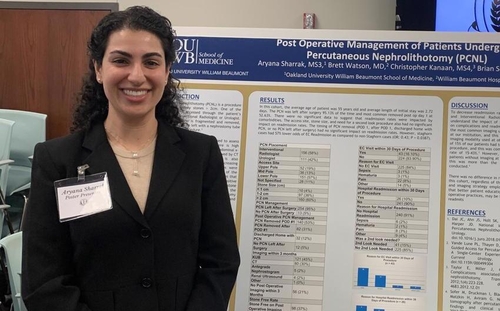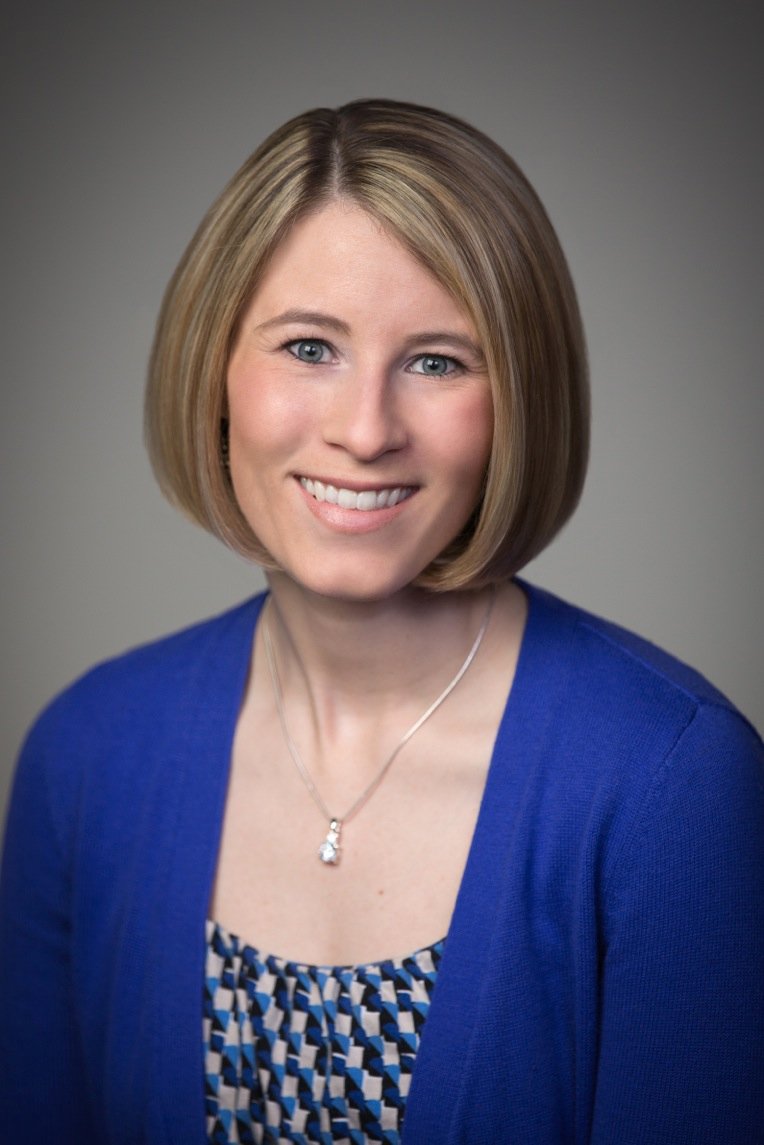
A recently published study by a fourth-year medical student at OUWB could play an important role in helping the Chaldean community battle opioid addiction, according to at least one expert.
“Understanding Opioid Addiction in the Chaldean Community: A Brief Report” was authored by Aryana Sharrak, M4, OUWB. It was published in the Journal of Immigrant and Minority Health.
The study examined the knowledge, attitudes, and beliefs among Chaldean community members with regard to the opioid epidemic — a topic lacking documentation, according to Sharrak.
Sharrak — who is Chaldean and was recently inducted into the Alpha Omega Alpha Honor Medical Society — said she was intent on doing something to help.
“The Chaldean community generally faces two challenges,” said Sharrak. “One is that there is a stigma within the community, and two, when the community does reach out for help, they don’t know where to start.”
A better understanding of the challenges the Chaldean community faces — backed by valid data — could go a long way, said Christien White, co-founder and communications director of Peter’s Angels.
Peter’s Angels is a Detroit-based nonprofit aimed at raising awareness about drug addiction within the Chaldean community.
“The data published will help us understand where work needs to be done,” said White. “Specifically, we now know that a majority of the participants believe there is in fact an issue with drug addiction within our community.
“We are hoping that having hard data will also provide us better opportunities with earning state and federal grants to expand our reach and provide financial assistance to families for rehab, therapy, rapid detox, and much more,” added White.
Inspiring positive change
Sharrak earned a bachelor’s degree from Wayne State University.
While there, she volunteered with Peter’s Angels due to her interest in the medical field and helping people deal with stigmatized issues.
Further, Sharrak said she was drawn to the organization because members of the Chaldean community, especially those in the older population, “don’t know how to find resources for addiction (and) they’re really embarrassed about it.”
In the November 2017 issue of Chaldean News, a story called “Dealing with drugs” shed light on the topic.
“The small tight-knit Chaldean community prides itself on having strong family values and a solid Christian faith,” the story stated. “So, when negative outside influences of modern-day society such as drugs sneaks its way into their homes, they are baffled on what to do.”
Chaldean News reported that “most (Chaldeans) prefer hiding the issue to avoid shame and embarrassment.”
As Sharrak’s published paper notes, the end result is a lack of information on opioid addiction that would be considered culturally appropriate for Chaldeans.
That was the primary reason that Sharrak said she wanted to delve deeper into the topic for her Embark project at OUWB. Embark is a four-year longitudinal curriculum that consists of structured coursework in research design and implementation, research communication, and scholarly presentation.
Lerchenfeldt |
Sharrak presented the idea to Sarah Lerchenfeldt, PharmD, assistant professor, OUWB, who saw the potential in the project.
Lerchenfeldt, president-elect of the Oakland County Pharmacists Association and member of Oakland County’s Substance Abuse Prevention Partnership, said she has an “active interest in reducing prescription drug abuse and overdoses.”
Lerchenfeldt is listed as a co-author along with Patrick Karabon, biostatistician, OUWB, and Rachel Yoskowitz, MPH, a longtime OUWB professor who retired at the end of 2019.
“I chose to pursue this project with Aryana because of her enthusiasm for learning and genuine desire to help others,” said Lerchenfeldt. “Her desire to inspire positive change was truly remarkable.”
‘A noteworthy project’
With support secured for the project, Sharrak set out to document Chaldean community members’ knowledge, attitudes, and beliefs regarding the opioid epidemic and resources needed to combat opioid addiction in their community.
“I wanted to give people and organization’s like Peter’s Angels data…legitimate evidence-based data,” said Sharrak. “That’s important because we know how important evidence-based data is in medicine…you really can’t get things done simply by saying ‘I’ve observed this in my community.’”
Sharrak developed a survey to learn more on those topics and secured responses from nearly 200 people. Sharrak said she reached out to people associated with Peter’s Angels, Facebook groups like Chaldean Moms of Detroit, and more.
Reponses indicated that “overall, respondents felt there is a problem with opioid addiction, but a lack of available resources to help.”
“It is necessary to educate community members that addiction is an illness rather than a moral failing,” the study found. “This altered perspective may enable community members to seek therapeutic intervention.”
Among other things, the paper suggests education be led by community organizations and that educational materials, including training for naloxone, be available to community members in English, Arabic, and Chaldean.
White said the study will help Peter’s Angels with its programming, specifically with regard to trying to shift attitudes toward addiction.
“The data collected will help us understand how to shape our program to fit the needs of the community,” she said. “As an organization, we now know that we need to reshape our programming to better push the narrative of addiction as a disease.”
For more information, contact Andrew Dietderich, marketing writer, OUWB, at [email protected].
To request an interview, visit the OUWB Communications & Marketing webpage.
NOTICE: Except where otherwise noted, all articles are published under a Creative Commons Attribution 3.0 license. You are free to copy, distribute, adapt, transmit, or make commercial use of this work as long as you attribute Oakland University William Beaumont School of Medicine as the original creator and include a link to this article.


